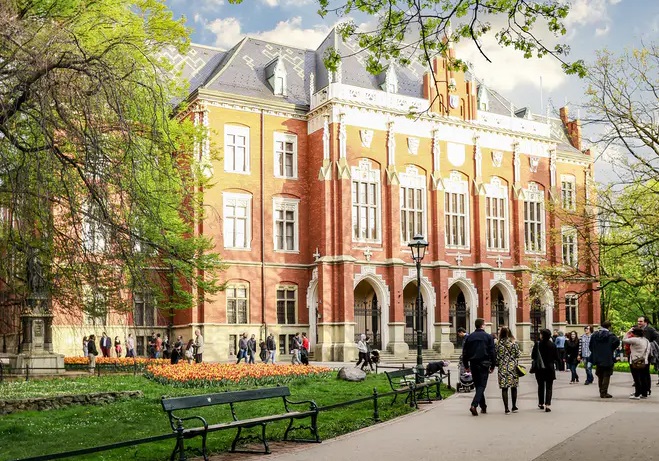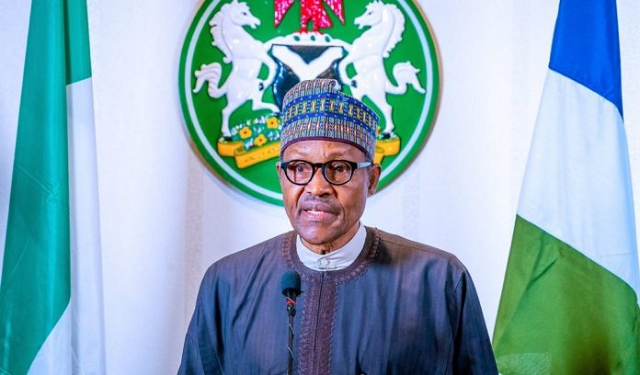As President Muhammadu Buhari addresses the nation today after 14 days of relaxation of the lockdown of the Federal Capital Territory (FCT), Lagos and Ogun states he had imposed March 30 to curb the spread of COVID-19, the organised private sector (OPS) and labour have indicated their opposition to a fresh shutdown of the economy.
Leading members of the sector and the Nigerian Labour Congress (NLC) spoke to THISDAY yesterday and said a fresh lockdown of the economy would be retrogressive and would have tremendous negative economic and social consequences on the country.
This position was canvassed by the Nigeria Employers’ Consultative Assembly (NECA), the Lagos Chamber of Commerce and Industry (LCCI) and the Nigerian Association of Chambers of Commerce, Industry, Mines and Agriculture (NACCIMA) and a Professor of Financial Economics and the Director of the Centre for Economic Policy Analysis and Research, University of Lagos, Prof. Ndubisi Nwokoma, in separate interviews with THISDAY.
Following the relaxation of the lockdown two weeks ago, the Presidential Task Force on COVID-19 had complained about the failure of citizens to adhere to measures laid down to curb the spread of the disease, warning that if the disobedience persisted, the federal government might be forced to reinstitute the shutdown of the country.
The rise in the number of confirmed cases and deaths since the easing of the restrictions had also made public health analysts advocate a return to total restriction to slow down the rampaging virus.
Yesterday, Nigeria recorded 338 new cases, bringing to 5,959 the total number of confirmed cases in the country.
Announcing this last night, the Nigeria Centre for Disease Control (NCDC) said Lagos recorded 177 new cases, Kano 64, Federal Capital Territory (FCT) 21, Rivers 16, Plateau 14, Oyo 11, Katsina nine, Jigawa and Kaduna four each, Abia, Bauchi and Borno three each, Gombe, Akwa Ibom and Delta two each, while Ondo, Kebbi and Sokoto recorded one each.
It said: “Nigeria had recorded 5,959 cases of COVID-19. 1,594 persons have been discharged, while 182 persons have died.”
The president is, however, unveiling new guidelines for the containment of the pandemic today, the Chairman of the PTF, Mr. Boss Mustapha, said yesterday while answering questions from journalists after leading his team to a meeting with the Buhari in the State House.
Mustapha, who described the meeting as a routine exercise during which appraisal of the last guideline unfolded by the Buhari was carried out, recalled that today, being the 14th day since April 27, when the last guideline was issued, the president is expected to unveil a new procedure for the fight against the disease.
According to him, the meeting was meant to present the president with raw materials aimed at assisting him in making the right decision for the way forward.
“This is part of a routine exercise. I think this is about the third time that we have had cause to submit an interim report to him on our activities as a task force and also to update him on preparation for the other phases of the engagement. And we have supplied him with all the materials that are required to look at the issues.
“We are in for the long haul, this is not a short distance race. It is a marathon and we have to keep everything in perspective. But remember, on the 27th of April, he addressed the nation and put in place the easing of the lockdown effective from the 4th of May. From the 4th of May to date is about 13 days.
“Tomorrow, we should expect new processes to be put in place. But we have to give him all the material details that will help us in preparing for the future. So, that is why we are here,” Mustapha said.
He also advised Nigerians expecting an immediate end or sudden disappearance of the disease to perish the thought, pointing out that it would be foolhardy to expect the fight against the disease to end in the next two months, bearing in mind that hope of available vaccines for its cure is not yet in sight.
According to him, it would not take earlier than 18 to 24 months before such vaccines would be produced, submitting that until such vaccines are available to cure the disease, COVID-19 would remain the albatross of mankind.
Furthermore, SGF added that even if the current cycle of the pandemic subsides, there might yet be its resurgence which he said had been the characteristics of infectious diseases.
Against this background, he said the task force had resolved to adopt a new approach in the fight against the disease, disclosing that the fight would henceforth be taken to community levels where there are primary health centres.
He said such primary health centres would serve as the platforms for tracing, tracking, isolating and reporting suspected symptoms of the disease.
Mustapha said: “COVID-19 is not going to go away in the next one or two months. Whoever tells you that is not being realistic. No vaccine is on the horizon. We are talking about 18 months to two years before vaccines would be confirmed for human use as far as COVID-19 is concerned, and unless we get there, what it means is that it will remain.
“It might have cycles. After the first cycle of the pandemic, there might be a relief.
There can be a resurgence and that is evidenced all over the world. It has happened before as it is the nature of infections. So, I believe that what we are going to do now as a task force is to come down to the levels of having the communities take ownership of the response.
“We have developed a national response which has been cascaded to the states but the communities must plug into the national response. Where we have primary health care centres all over the country, they can be used as stations of reporting of surveillance within a particular community, of tracing, of tracking so that we can take out those that we suspect to have exhibited symptoms or have come in contact with people who have exhibited symptoms for testing and isolation.
“That way, you plug them out of the community and reduce the risk of transmission. That is basically what we are working on.”
Mustapha, who is also the Secretary to the Government of the Federation (SGF), insisted that the battle at hand is not “a 100-metre race” but assured that the new guidelines to be unveiled by Buhari today are holistic and would provide a better platform to handle the pandemic.
“I can assure you that with proposals we have brought today for Mr. President’s consideration, I think holistically it will put us in a better frame to deal with the future,” he said.
He also spoke on the Malagasy formulation against COVID-19, which the President of Guinea Bissau, Mr. Umaro Embalo, presented to Buhari on Saturday, saying the medicines would be handed over to the agency concerned today for the commencement of trial process.
He, however, reiterated the comment of the president while receiving the drugs that they would not be administered until they have been scientifically proven.
“I understand it’s been brought by…I will take delivery probably tomorrow (today), Monday. The president has already said it will be scientifically dealt with; it is only after that that he can allow it to be tested. But that has been our position that whatever comes in, whatever cure, whatever solution that is being provided must be subjected to a process of validation.
“The Minister of Health has institutions under his ministry that are charged statutorily with the processes of validation. Anything that we will receive, anything that is locally developed must go through the processes of validation before we will allow it,” he explained.
SGF also disclosed that an opinion poll conducted in the country on the level of awareness of the existence of the disease showed that 99 per cent of respondents confirmed that they were aware of it.
However, he said 26 per cent others claimed that they had immunity against it, a situation he described as unhealthy because such persons might not adhere to safety procedures which he said could lead to further spread of the disease.
Mustapha further gave a hint indicating that pastors agitating for the reopening of churches might have to wait for so long, noting that the task force is strongly opposed to the idea of people congregating in any area.
According to him, the aftermath of such action would be counter-productive, because it would serve as a breeding ground for transmission of the disease particularly among the aged and sick persons with weak immune systems.
“That is why as a task force, we have stood very strong against congregations.
Congregations are the easiest places where you can get infected in terms of
transmission and that is why we try as much as possible to discourage congregations in all that we do. Because, the aged, the sick and the vulnerable will turn up in congregations and once they get infected it becomes another ball game altogether.”
He said the president was satisfied with the performance of the task force, saying he pointed out that despite Nigeria’s weak health infrastructure, the level of fatality from the pandemic is far insignificant when compared with what is happening in the developed world “where countries …have traditionally established health institutions with all the palliatives, with all the privileges, with all the schemes that guide its people.”
Source: THISDAY










